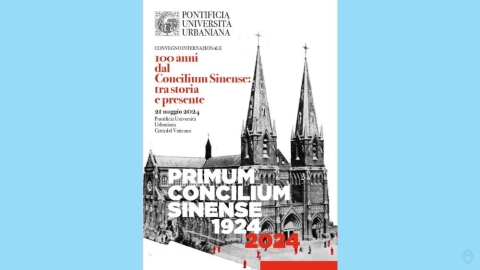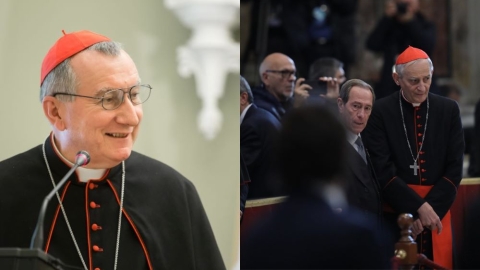Indifference to Anti-Christian Persecution

The fire of the Kreuzerhöhungskirche church (Church of the Exaltation of the Cross) in Wissen, Germany, on February 10, 2023
The annual report of the OIDAC—the Observatory on the Intolerance and Discrimination Against Christians in Europe—was published on the occasion of the International Day for Tolerance, on November 16, 2023. The report indicates a clear increase in anti-Christian hate crimes, up to 44%—information that the progressive media outlets are struggling to relay.
For the year 2022, the OIDAC documented 748 anti-Christian hate crimes in 30 different countries, ranging from arson, graffiti, desecration, and theft to physical attacks, insults, and threats. These figures correspond to those of the OSCE (the Organization for Security and Co-operation in Europe) report on hate crimes, published the same day, counting 792 anti-Christian hate crimes in 34 countries.
The OIDAC report highlights two trends: the first concerns the increase in arson attacks against churches, going from 60 in 2021 to 105 in 2022. The second highlights that these crimes are now for the most part perpetrated by radical members of small ideological, political, or religious groups driven by an anti-Christian narrative.
“While in the past, the motives for church desecration remained largely unclear, today we are discovering that more and more authors are leaving messages that reveal an extremist motive, even proudly claiming authorship of their criminal actions on social networks,” explains Anja Hoffmann, director of OIDAC.
This escalation worries Regina Polak, researcher and representative of the OSCE: “The growing number of anti-Christian hate crimes in Europe reported by the OIDAC is deeply worrying. It is imperative to make governments and society aware of this problem and to take policy measures to address and combat it in a decisive manner.”
Related Article:
Criminalization of Religious Teaching
For Anja Hoffman, we are also seeing in public discourse a “criminalization of traditional religious teachings which are falsely accused of inciting hate, which is dangerous on multiple levels: it stigmatizes legitimate beliefs linked to freedom of conscience and it deprives the real concept of inciting hate of its actual meaning.”
Sometimes, it is the State itself which restricts Christians’ freedom of conscience—notably in the United Kingdom, by the creation of “buffer zones” which criminalize prayer around clinics practicing abortion. Particularly revealing was the arrest of Isabel Vaughan-Spruce, questioned while she silently remained in one of these “buffer zones” and ordered by the police to say whether she was “mentally praying,” which seems to have become a crime.
“Silencing Christian voices in public space undermines the diversity of Western democratic societies and fundamentally renders all free discourse impossible,” laments the director of the OIDAC, who predicts “a difficult future” for our societies.
The OIDAC report mentions other forms of discrimination: job loss for having expressed one’s faith, suspension or criminal charges for having displayed a non-violent religious position in public, attacks or indictments for allegedly having expressed “hate speech,” sometimes simply for having adhered to the traditional teachings of their Churches.
The dismissals of Ben Dybowski and Joshua Sutcliffe, professors at Oxford, and the chaplain of Trent College School, Reverend Bernard Randall, in Derbyshire, England, are well known.
This rampant persecution is in addition to very visible attacks, but it is no less violent, and it is displayed with the respectability of the law slung over its shoulder, which renders it all the more dangerous and effective at muzzling Christians, in virtually general indifference.
(Sources : Tra Cielo et Terra/OIDAC/Zenit – FSSPX.Actualités)
Illustration : SWR





